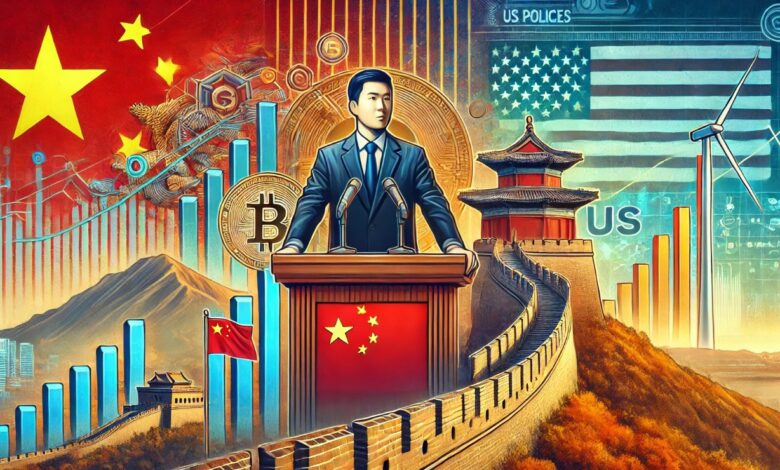
As global discussions on cryptocurrency regulation intensify, a former senior official from China’s Ministry of Finance has called for a reassessment of the country’s strict ban on virtual assets. Zhu Guangyao, who served as vice minister from 2010 to 2018, emphasized the growing importance of cryptocurrencies to China’s digital economy at a recent economic forum in Beijing.
Calls for Reconsideration of Crypto Ban
Zhu’s comments come at a crucial time when the United States has significantly revised its cryptocurrency policy, prompting experts in China to advocate for a similar reevaluation. The former minister acknowledged that while cryptocurrencies pose certain risks—such as capital market volatility and potential misuse for illegal activities—they are also pivotal for advancing the digital economy.
In 2017, the Chinese government banned initial coin offerings (ICOs) and shut down crypto exchanges. This crackdown was further intensified in 2021 when authorities prohibited Bitcoin (BTC) mining activities and declared crypto-related businesses illegal. The overarching rationale behind these measures concerns financial stability and the potential for cryptocurrencies to facilitate criminal activities, including money laundering and terrorist financing.
However, Zhu argued that the issues associated with cryptocurrencies could be effectively managed through regulation rather than outright bans. He noted, “Our current gap [with the US] is that we don’t participate,” suggesting that underground trading channels continue to operate without governmental oversight despite existing restrictions.
Global Perspectives: Trump and Harris on Crypto
While China maintains its stringent regulatory stance, Hong Kong is charting a different course. The region is actively developing its cryptocurrency market to become a global hub for digital assets, operating under a separate legal framework that enjoys tacit approval from Beijing. This divergence is exemplified by the recent approval of the crypto exchange-traded funds (ETFs) market earlier this year, which directly invested in the two largest cryptocurrencies, Bitcoin and Ethereum (ETH).
The shifting dynamics of the global market have also caught the attention of political figures in the United States. Republican candidate and former President Donald Trump has emphasized the need for the US to embrace digital assets to prevent China from dominating the space. Similarly, Democratic presidential candidate Kamala Harris has expressed support for innovative technologies, including digital assets, to regulate this sector for its growth.
Expert Opinions on China’s Crypto Ban
Wang Yang, a prominent academic, has criticized China’s ban on cryptocurrency mining, describing it as “very unwise,” as it inadvertently shifted business opportunities to the US. Yang cautioned that if former President Trump were to regain his seat in the Oval Office, China might face increased “financial isolation,” potentially being removed from the SWIFT financial messaging system.
Echoing these sentiments, economist Huang Yiping, a former monetary policy committee member at the People’s Bank of China, has questioned the long-term sustainability of the cryptocurrency ban. He suggested that it could hinder China’s ability to capitalize on blockchain technology and other innovations.
The Future of China’s Digital Asset Strategy
Ultimately, it remains to be seen whether the Chinese government will implement a new regulatory framework to lead in digital asset adoption or maintain its current stance, knowing that the nascent sector has become increasingly important to the global economy. The 1D chart shows the total digital asset market cap valuation at $2.199 trillion.







